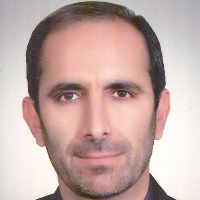Variation and Phylogenetic Analysis of the ORF9b Genes of SARS-CoV-2 Isolated from Iran
The open reading frame 9 (ORF9b) proteins, which is an accessory protein of SARSCoV- 2, can play a role in the virulence of the virus through mechanisms. Mutations in this coding gene region can affect protein function. Therefore, the present study investigated mutations in the ORF9b gene of SARS-CoV-2 isolated from Iran.
Methods and Materials:
ORF9b sequences of SARS-CoV-2 viruses isolated from Iran, which were submitted to the National Center for Biotechnology Information (NCBI) database; moreover, the ORF9b sequence of the Wuhan strain were extracted as a reference strain. The amino acid changes were investigated and the phylogenetic tree of the extracted sequences with Wuhan reference strain was drawn using Mega software version 7 and neighbor-joining (NJ) algorithm.
Finally, 24 complete genome sequences of SARS-CoV-2 were extracted from NCBI. Analysis at the amino acid level showed that ORF9b related to newly isolated viruses has undergone changes compared to the Wuhan reference strain. Three of these changes were in the binding region of this protein to Translocase Of Outer Mitochondrial Membrane 70(TOM70). Furthermore, the drawing of the phylogenetic tree showed that the ORF9b gene of SARS-CoV-2 has become different over time in the isolated strains.
Considering the role that the ORF9b protein has in the pathogenesis of SARS-CoV-2 and mutation occurs in this protein, it is suggested to monitor the changes in this viral protein in new variants that were detected.
SARS-CoV-2 , ORF9b , Iran
-
Exploring EBNA1-Mediated Regulation of Key Cellular Genes in Glioblastoma Multiforme: Implications for EBV-Associated Pathogenesis
Amir Hossein Alipour, Hamideh Najafi, Zahra Ziafati Kafi, Seyed Mohammad Ali Hashemi, , Arash Ghalyanchi Langeroudi*
Iranian Journal of Medical Microbiology, -
The Frequency of High-Risk and Low-Risk Human Papillomavirus Genotypes in Different Grades of Cervical Lesions in Shiraz, South-West of Iran
Negar Joharinia, Seyed Ammar Mousavi-Nejad, Ali Farhadi, Akbar Safaei, Seyed Younes Hosseini, *
Iranian Journal of Medical Microbiology,


